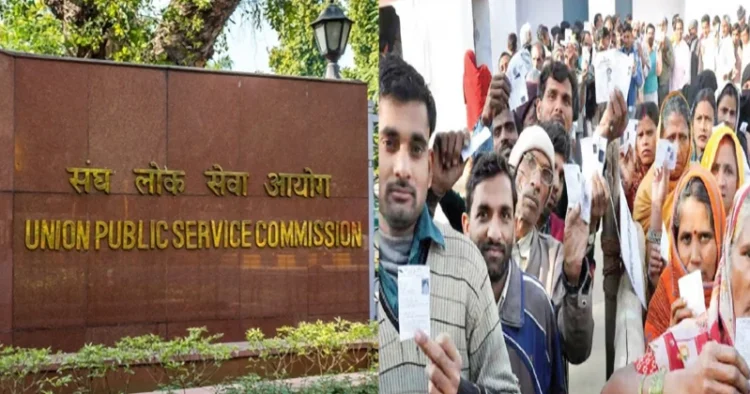The Union Public Service Commission (UPSC) has rescheduled the exam date of the CSE prelims to June 16, 2024. Earlier the exam was scheduled to be conducted on May 26, 2024, however the same has been posted due to Lok Sabha Elections. The Election Commission notified that the 18th Lok Sabha elections will be held from April to June 2024. Candidates who have applied for the UPSC civil service prelims exam 2024 can check the official website upsc.gov.in for notice. Once the prelims are over, UPSC civil services mains exam will be held from September 20, 2024 for five days.
The official notice states, “In light of the forthcoming General Election schedule, the Commission has decided to reschedule the Civil Services (Preliminary) Examination2024, which doubles as the screening test for the Indian Forest Service Examination, 2024 as well.
About UPSC
The Union Public Service Commission (UPSC) Civil Service Preliminary Examination is not just a milestone but a path dedicated to public service. Due to its rigorous and challenging selection process, it acts as a significant benchmark for candidates across India. However, the landscape of the UPSC examination often experiences unforeseen shifts, demanding adaptability and resilience from candidates.
The recent announcement of the UPSC Civil Service Prelims 2024 exam dates being rescheduled to June 16 due to the General Elections makes candidates undergo a unique challenge. The change in the exam date not only affects the candidate’s preparation time but also highlights the dynamic nature of the examination process. In light of this postponement of the date, candidates should alter their strategies and approach to ensure optimal preparedness. The last date to apply for the prelims exam was also extended to March 6, 2024.
How should candidates view this situation of date change?
In essence, the rescheduling of UPSC Civil Service Prelims 2024 exam dates underscores the fluidity of the examination process and the necessity for aspirants to adapt their strategies accordingly. By embracing flexibility, remaining steadfast in dedication, and honing a multifaceted skill set, aspirants can navigate this transition with confidence and optimise their chances of success in the pursuit of their aspirations for public service.
Candidates should acknowledge the implications of the shifted timeline on their study schedules. The extended preparation period will offer them a thorough revision time and consolidation of concepts can be done. However, it is also important for them to maintain consistency and discipline in their study routines to prevent complacency.
Moreover, candidates can leverage this additional time to enhance their problem-solving skills and aptitude for analytical reasoning. Solve mock tests, previous years’ question papers, and participate in group discussions to have a strategic approach toward tackling the diverse challenges posed by the examination.
Candidates are also encouraged to prioritise self-care and holistic well-being amidst the intensifying preparation. Balancing study commitments with adequate rest, physical exercise, and recreational activities is crucial for maintaining mental sanity.
Earlier, UPSC 2024 official notification was released on February 14 and defined the eligibility criteria for candidates who wish to apply. Prospective candidates should have completed a bachelor’s from a recognised university or an equivalent qualification. The age limit for applying candidates should be within the age bracket of 21 to 32 years.
As per the paper pattern, UPSC Civil Service Prelims 2024 exam comprises objective-type questions only. UPSC Prelims Paper 1 emphasises on General Studies in which candidates are required to delve into multiple subjects such as the Indian National Movement, national and international relations, Indian history, India’s social geography, politics, and governance, which includes the constitution, political system, and public policy.
Additionally, the prelims syllabus also includes economic and social development, sustainable development, poverty, and environmental studies that cover topics such as biodiversity and climate change, along with general science.

















Comments